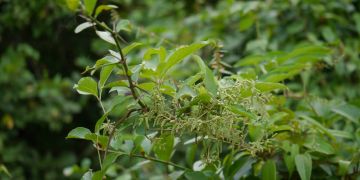It has long been used for its benefits in women's reproductive health, including premenstrual syndrome and menopausal problems. It can be taken in capsules or in tea (though there are mixed opinions on the flavour). The powder can be added to creams or vaginal ointments.
Wild Yam's traditional use is for easing menstrual cramps. Its antispasmodic property is beneficial for any kind of muscular spasm and colic, such as intestinal and bilious colic, flatulence, ovarian and uterine pain; for poor circulation and neuralgia; for the inflammatory stage of rheumatoid arthritis; and for abdominal and intestinal cramping. Wild Yam can be very beneficial for nervousness, restlessness and other nervous conditions.
As a stimulant for increased bile flow, it can help to relieve hepatic congestion, bilious colic and gallstones.
Also known to have a therapeutic action on overall liver health, it is believed that wild yam root's ability to lower blood cholesterol levels and lower blood pressure indirectly helps the liver by increasing its efficiency and reducing stress.
Its steroidal saponins are also anti-inflammatory , making it a useful herb when treating rheumatoid arthritis and inflammatory conditions of the bowel. Its diuretic effect, combined with the antispasmodic action, soothes painful conditions of the urinary tract.
Wild yam contains alkaloids, steroidal saponins, tannins, phytosterols and starch.





